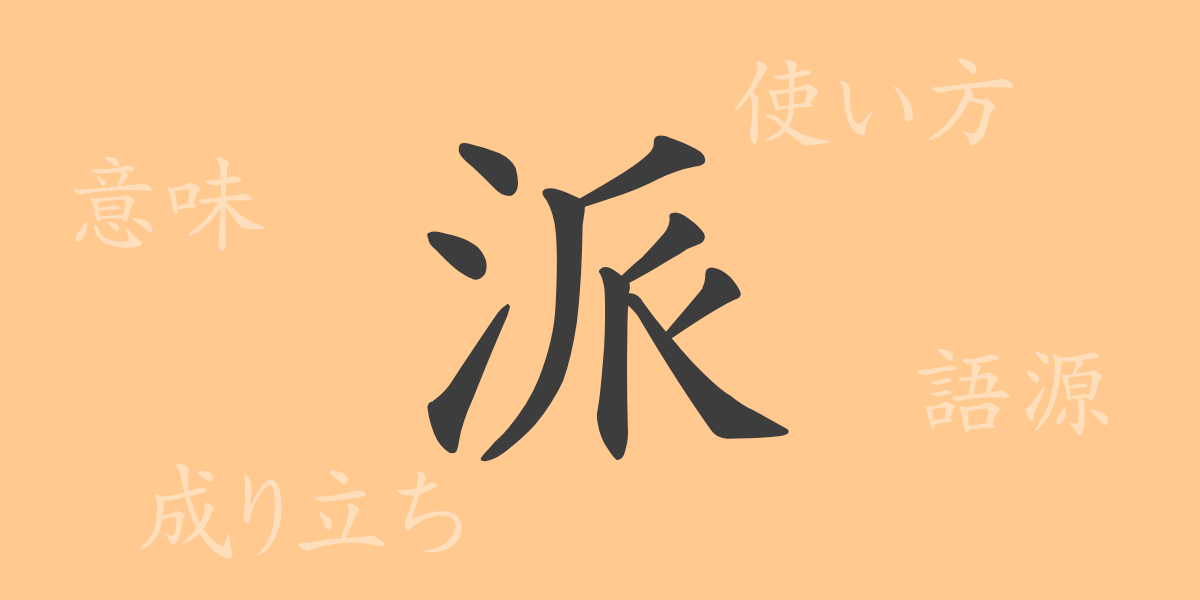Japanese culture is rich in history and meaning, and the kanji characters play a significant role in this. One such commonly used kanji, “派” (は(Ha)), is no exception. This article delves into the origins, meanings, and uses of the kanji “派,” exploring its profound significance in everyday language. Join us on this journey to deepen your understanding of the complexities of Japanese language.
Origins of 派 (は(Ha))
The kanji “派” consists of the radical for water, “氵” (さんずい(sanzui)), and “発” (うつ(utsu)), which denotes splitting. This combination originally represented the splitting of water flows, and by extension, came to symbolize division and derivation, such as in “分派” (branches) and “流派” (schools or styles). In ancient Chinese texts, “派” was used to describe the branching out of ideologies and techniques.
Meaning and Usage of 派
In modern Japanese, “派” is primarily used to denote groups, schools of thought, or factions, such as in “グループ” (group), “流派” (school), and “派閥” (faction). It describes groups of people sharing common ideas, techniques, or interests and is also used in political contexts to refer to a faction within an organization. The term “〜派” is often used to refer to people who sympathize with certain figures or ideologies, reflecting the diversity of culture and society in Japan.
Readings, Stroke Count, and Radical of 派
The kanji “派” carries the following essential details:
- Readings: On-reading is “ハ” (Ha), and there are no commonly used Kun-readings.
- Stroke Count: A total of 9 strokes.
- Radical: The radical is “氵” (さんずい(sanzui)), associated with water.
Phrases and Proverbs Involving 派
The kanji “派” appears in numerous idioms and phrases, each reflecting various aspects of Japanese society and culture. For example, “文学派” (literary group) refers to a group of writers with specific literary tendencies, “進歩派” (progressive) denotes people seeking new ideas and changes, and “保守派” (conservative) describes individuals who advocate for maintaining existing order and traditions. The adjective “派手” (flashy) is used to describe something striking or glamorous.
Conclusion on 派
The kanji “派” illustrates the concept of division and the derivation of various meanings from this process, as its form suggests. It plays a significant role in expressing the diversity of groups and ideologies within Japanese society. By exploring the deep historical and cultural layers embedded in this single character, we can appreciate the richness of the Japanese language and its capacity to reflect complex human relationships and societal structures.

























